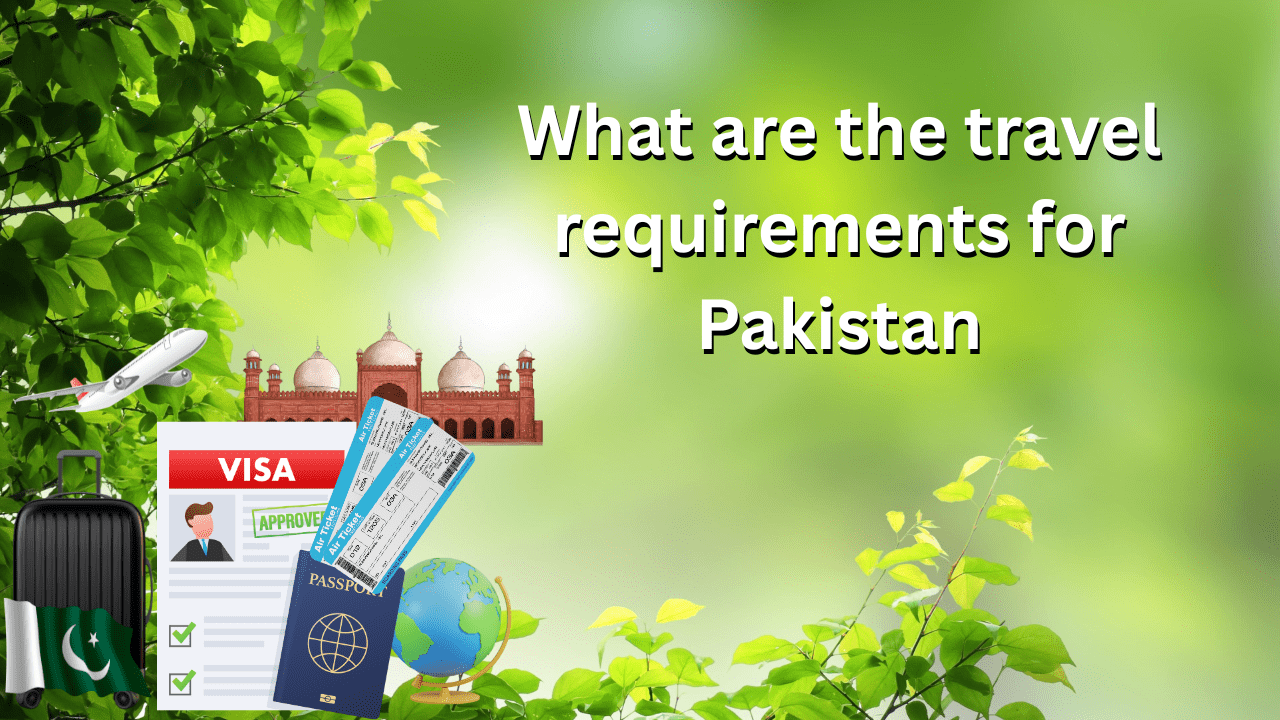What do I need to travel to Pakistan?
Pakistan is quickly becoming a favorite destination for travelers seeking natural beauty and cultural richness. From the serene mountains of Hunza to the vibrant streets of Lahore, the country offers something for everyone.
Before you pack your bags, it’s important to understand Pakistan’s current travel requirements. In this guide, you’ll find everything you need for a smooth entry in 2025.
1. Visa Requirements
Tourist eVisa
Firstly, most travelers need to apply for a tourist eVisa. This is the easiest and fastest method.
- Apply through the official NADRA portal.
- Processing time: 7 to 10 working days.
- Valid for stays of 30 to 90 days.
- Required: Passport, photo, and proof of stay.
Visa on Arrival (VOA)
In addition, Pakistan offers Visa on Arrival to citizens of 64 countries. However, pre-approval is necessary.
- Apply online before traveling.
- Carry your pre-approval document and valid passport.
Required Documents
Make sure to prepare the following:
- A passport valid for 6+ months.
- A passport-size photo.
- A confirmed return ticket.
- Proof of funds or a recent bank statement.
2. Health and COVID-19 Regulations
Although many COVID restrictions have been lifted, some protocols remain in place.
Entry Requirements
- No vaccination certificate is currently required.
- No quarantine rules as of April 2025.
- However, random COVID testing is possible at airports.
- A health declaration form may be requested.
Travel Insurance
It is strongly recommended to purchase travel insurance. This should include coverage for illness, injury, and COVID-related issues.
3. Customs and Border Control
Upon arrival in Pakistan, travelers must complete basic immigration steps.
What to Expect
- Submit an immigration form.
- Answer questions about your trip and accommodation.
- Keep printed copies of your documents handy.
Prohibited Items
You must avoid bringing:
- Weapons, including firearms.
- Pornographic material.
- Drugs or narcotics.
- Drones (unless you have written permission).
4. Currency and Money Tips
Managing your finances during the trip is also essential.
Currency Declaration
If you carry more than $10,000 USD, you must declare it at customs.
Exchange and Payments
- Use banks or ATMs for currency exchange.
- Many rural areas do not accept credit cards.
- Therefore, carry some local cash.
- Mobile payment systems such as Easypaisa are growing.
5. Safety and Legal Considerations
Is Pakistan Safe?
Yes, Pakistan is generally safe for tourists. Especially in places like Islamabad, Gilgit-Baltistan, and Swat Valley.
However, you should avoid traveling near border areas without special permission.
Local Laws
Respect the following:
- Dress modestly, especially in rural areas.
- Alcohol is limited to non-Muslims with a permit.
- Avoid public religious debates or controversial discussions.
6. Registration for Certain Regions
In some parts of Pakistan, such as Gilgit-Baltistan or tribal areas, tourists may need to register with local authorities.
How to Register
- Registration is usually done at regional checkpoints.
- Therefore, keep multiple copies of your passport and visa.
- Ask your hotel or guide for assistance.
7. Transportation Options
Getting around Pakistan is easier than ever.
Domestic Travel
- Major cities are connected by local airlines.
- Buses like Faisal Movers and Daewoo Express are reliable.
- Ride-hailing apps like Careem and Uber operate in most urban areas.
Final Checklist Before You Travel
✅ Apply for your eVisa in advance
✅ Print all required documents
✅ Purchase travel insurance
✅ Plan local transport options
✅ Respect local culture and laws


